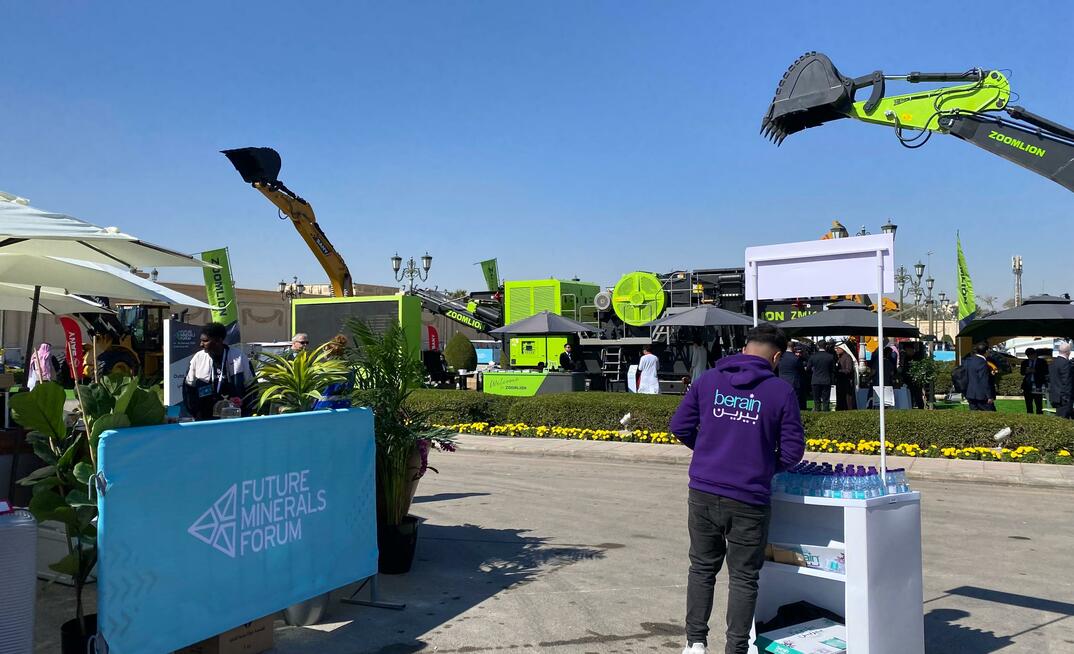Saudi Arabia's fourth Future Minerals Forum concluded with a record-breaking US$28.5 billion worth of agreements signed, according to the event organiser.
Over the three days of the conference, held in Riyadh last week, 126 memorandums of understanding (MoUs) and agreements were signed between governments, domestic firms and international organisations.
The agreements cover a range of activities. These include mineral exploration, financing, research and development, sustainability efforts, and investments in value chains both in and outside the Kingdom. Saudi organisations such as the Ministry of Industry and Mineral Resources (MIM), Aramco, Ma'aden, MODON, and Ajlan were key participants in the deals.
International partners included Chinese multinational tech firm Alibaba Group Holding, surveying company Viridien, AI satellite company Star Vision Aerospace, and the College of North Atlantic Canada.
YOU MIGHT ALSO LIKE
Processing rise
According to the organisers, the split of agreements is roughly 51% with Saudi companies and 49% with international partners, as the Kingdom strives to balance local development with global partnerships.
Among the agreements announced was one between the Royal Commission for Jubail and Yanbu (RCJY) and Turkish steel conglomerate Tosyalı Coremetal Arabia to develop a US$5Bn integrated flat steel plant at Ras Al-Khair.
Another deal between RCJY and Vale will fund the construction of an iron ore briquette plant. Additional projects included a copper smelter and refinery to be built by Vedanta Copper, an investment structure for deep-sea exploration funded by Mekyal Financial Technologies and Marine Mining Company, and a tinplate production facility through a partnership between Al Watania For Industries and Shanghai Donghexin New Material Group.
Knowledge partnership
In a separate announcement, the FMF confirmed it had renewed its partnership with McKinsey & Company as its exclusive Knowledge Partner. The consultancy will provide analysis and insights for the Forum throughout 2025, contributing to next year's discussions on industry trends and sustainability challenges.
Tarek El Sayed, head of McKinsey's Riyadh office, said, "Our partnership is not just about providing knowledge-driven insights; it's about envisioning a more resilient and responsible minerals industry."
This year, participants from 178 countries, including 75 government representatives, attended the event, which included ministerial roundtables, exhibitions, and specialised zones for mineral technology and exploration, aimed at promoting collaboration and innovation.
A movement
Speaking to Mining Magazine about the event's significance, Abdulrahman AlBelushi, the Kingdom's assistant deputy minister for Mining Enablement said: "The event is now more of a cause – a movement – rather than just a forum. More than 80-85% of [the attendees] are chief executive level or above. [There is] a diversity we see in international associations and organisations, where more than 40 attended [this year], up from only six in the first edition of the forum."
"When you look at Saudi, [we] have a key advantage in global processing of commodities. You have the right geographical location and the right network of support for all the inputs required for processing. And then you also have the right commitments from all the different parties, especially the government, to ensure that investment will flourish."
























